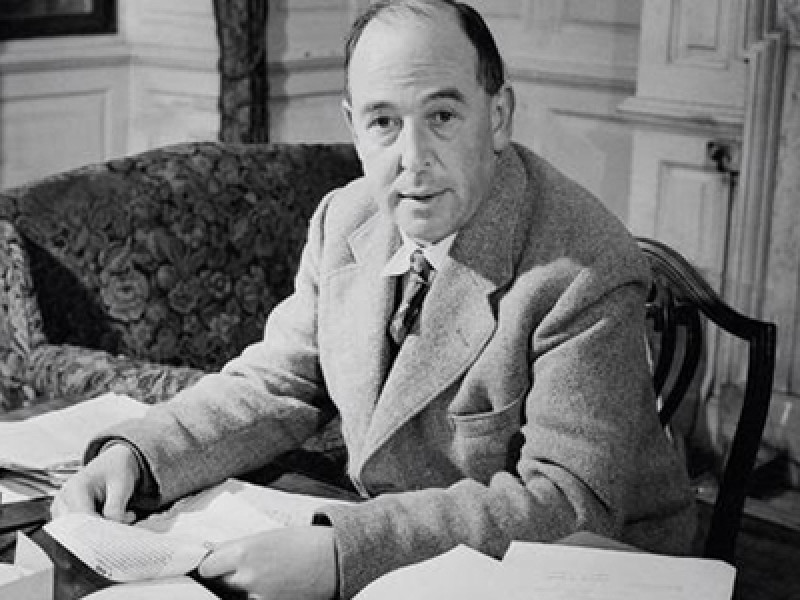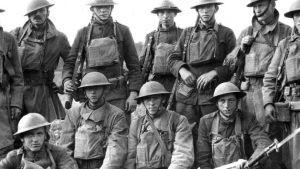A few commentaries have been floating around the Internet for the past several years that have attempted to add a little perspective to the many critical issues and challenges we are facing today. I have adapted the contents of a couple of those to my essay here.
Essentially what those commentaries attempted to do was to put things into some kind of perspective. The problems confronting us today may seem unique and insurmountable. But are they?
Let’s do a cursory assessment of the way things are today.
For the past two years, we have dealt with the global Covid-19 pandemic and now we are seeing the steady erosion of our rights as vaccine and mask mandates are imposed on us by federal and state governments focused on incomparable control and overreach.
We live in a nation that appears woefully divided politically, socially, ethnically, and racially, As a result, we appear to be splitting into belligerent tribes. Parents are at war with local school boards over what they see as the Marxist indoctrination of their children via the teaching of specious Critical Race Theory.
We are on the cusp of record inflation. For example, food prices across the world have risen 32.8 percent to their highest levels in a decade on the back of tightening supply conditions, according to the Food and Agriculture Organization of the United Nations (FAO).
Wholesale fuel and gas prices have jumped 250% since January, pushing the average price of gas at the pump to $3.30 per gallon—the highest it’s been in the past seven years. In California, the average price of a gallon of gas just hit $4.42—the highest it’s been since 2012. Americans who heat their homes with natural gas are facing a 100 percent increase in their heating bills from a year ago, according to the Center for Strategic and International Studies.
Terrorism remains a constant threat especially since our wholesale withdrawal from Afghanistan where groups such as ISIS-K and a re-ascendant Al Qaeda will be allowed to flourish and plan attacks on Europe and the United States.
In short, our world is NOT a happy place. It is fraught with problems, antagonisms, and danger.
Now let’s try and put all of this into some kind of perspective by comparing and contrasting today’s world to the 101-year-long life of someone born in 1900. We tend to think of the past as a place where things were better, simpler, and more habitable. But is that really the case?
Imagine that you are born in 1900. It is a time of tremendous social and economic upheaval in the United States. Everything seems fairly tolerable until you reach the age of 14. That’s when World War I begins and lasts until you are 18 years old. By the time it’s over, an estimated 37 million people worldwide will have died, including 116,708 of your fellow Americans. You are still alive, but you may have lost friends and relatives in the conflict.
Just as the war ended, the world is struck by the 1918 Spanish Flu pandemic. By the time you’re 20, it has killed 675,000 Americans and at least 50 million people worldwide. You managed to survive the Spanish Flu, but you’re far from safe. There are still myriad other diseases and viruses out there with no cure or treatment, including polio, scarlet fever, and diphtheria. Smallpox remains rampant worldwide until the 1940s, killing some 300 million people during your lifetime.
It would be another nine years before penicillin is discovered in 1929, when you are 29—the same year that the Great Depression begins and the “Roaring Twenties” end. The Great Depression lasts 10 years. Unemployment hits 25%, global GDP drops 27%. The country nearly collapses along with the world economy. You and millions of other Americans spend countless days in long soup lines just to get something to eat.
Then, as you turn 39 and when you think things couldn’t get any worse, World War II begins in Europe. The U.S. manages to stay out of the conflict until 1941 when the Japanese attack Pearl Harbor, and America is hurled into the conflict.
When you’re 45, World War II ends. Some 80 million people have died, and of those 416,800 are Americans. It would be the deadliest war in history, killing 3% of the world’s population.
In 1946 there is a sense of hope that the carnage of World War II will usher in an era of peace and global cooperation. Unfortunately, peace doesn’t last.
When you turn 50, the Korean War begins and kills another 40,000 Americans as well as 5 million Korean deaths. The active war lasts three years. Theoretically, however, it has never ended because in 1953 a fragile armistice agreement that establishes the Korean Demilitarized Zone (DMZ) along the 38th Parallel is signed. That pact remains in effect today.

A year after the fighting in Korea ends you have just turned 54 and the Vietnam War begins between the Communist Viet Minh and the French, who colonized Indochina in the 19th century. The French are defeated by the Viet Minh in the decisive battle of Dien Bien Phu. French rule ends and under terms of the Geneva Accords Vietnam is divided at the 17th Parallel between the communist north and the nationalists in the south. It’s an uneasy arrangement and its violation will eventually bring about U.S. participation.
At the age of 57, you live through another global pandemic. The H2N2 Asian flu kills four million people worldwide and 116,000 in the United States. As with Covid-19, it originates in China.
Approaching your 62nd birthday you and millions of other Americans watch the Cuban Missile Crisis unfold. It’s a tipping point in the Cold War. The threat of nuclear war is real and life on our planet, as we know it, could well have ended. Cooler heads prevail and the ICBMs remain in their silos.
When you turn 65, U.S. Marines land on beaches near Da Nang beginning an almost 10-year-long American military involvement in the war. Some four million people will die during the war, including 58,000 Americans. During the war you watch America tear itself apart between those who support the war and those who don’t.

You experience the so-called “cultural revolution” of the 1960s along with major shifts in American values and ideology. You have never seen the nation so divided and at war with itself. The Civil Rights movement ends decades of segregation, but the assassinations of President John F. Kennedy, his brother Robert Kennedy, and Dr. Martin Luther King Jr. leave the nation in a state of prolonged depression.
When you are 68, the third influenza pandemic of the 20th century occurs. It’s called the H3N2 Hong Kong Flu and it kills almost four million people worldwide and 100,000 in the U.S.
As you turn 75, the Vietnam War ends, but the divisions created by the war in the United States remain.
When you are 81, an assassination attempt on President Ronald Reagan almost succeeds and there is a brand new virus to contend with that’s never been seen before called HIV-AIDS. It will kill hundreds of thousands in the US alone.

But your century is not over—not by a long shot.
When you are 91, you witness the collapse of the Soviet Union and when you turn 95 there is a domestic bomb attack on the Alfred P. Murrah Federal Building in downtown Oklahoma City killing 168, including 19 children under the age of 6. Four years later when you are 99, 15 people, including the shooters, are killed in the Columbine high school massacre.
Let’s say you live to 101—long enough to see America attacked by terrorists flying four hijacked airliners. You watch two planes crash into the twin world trade center towers in New York City, while another plane crashes into the Pentagon building in Washington and the fourth plane crashes into a Pennsylvania field when passengers take over the aircraft.
That was your century—the Twentieth. During that century you lived through several “hot wars” and for 36 of those years, you lived through the “Cold War” with the constant threat of nuclear annihilation hanging over your head.
British author C.S. Lewis, discussing the peril of living when the threat of a nuclear war was on everybody’s mind, had this to say in 1948 about existence during the “atomic age.” If you substitute the words “atomic bomb” with the words “Covid-19” you will see how relevant and spot-on his essay still is.

“In one way we think a great deal too much of the atomic bomb. ‘How are we to live in an atomic age?’ I am tempted to reply: Why, as you would have lived in the sixteenth century when the plague visited London almost every year, or as you would have lived in a Viking age when raiders from Scandinavia might land and cut your throat any night; or indeed, as you are already living in an age of cancer, an age of syphilis, an age of paralysis, an age of air raids, an age of railway accidents, an age of motor accidents.’
“In other words, do not let us begin by exaggerating the novelty of our situation. Believe me, dear sir or madam, you and all whom you love were already sentenced to death before the atomic bomb was invented: and quite a high percentage of us were going to die in unpleasant ways.
“We had, indeed, one very great advantage over our ancestors—anesthetics; but we have that still. It is perfectly ridiculous to go about whimpering and drawing long faces because the scientists have added one more chance of painful and premature death to a world which already bristled with such chances…and in which death itself was not a chance at all, but a certainty.
“This is the first point to be made: and the first action to be taken is to pull ourselves together. If we are all going to be destroyed by an atomic bomb, let that bomb when it comes find us doing sensible and human things—praying, working, teaching, reading, listening to music, bathing the children, playing tennis, chatting to our friends over a pint and a game of darts—not huddled together like frightened sheep and thinking about bombs. They may break our bodies (a microbe can do that) but they need not dominate our minds.”
C.S. Lewis puts things in remarkable perspective—just as someone who was born in 1900 and who lived to 2001 might have done.
What say you?




Fascinating—The Spanish flu pandemic of barely more than a year killed more US citizens than every US military combat death in history, 1775-2021.
Amazing isn’t it?